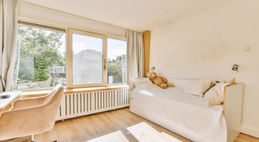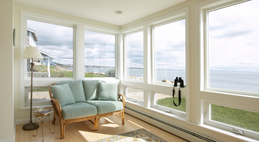In particular we focus on getting the loan structure right the first time, choosing which lenders to use in the right order (yes this is important) and finally getting our clients the best deal possible.
Home loans and private school fees
Did you know most home loan providers will include the full cost of private school fees as an ongoing expense when assessing borrowing capacity for a home loan? And that they will include this above and beyond a borrower’s “normal” living expenses? This disregards the fact that the loan is usually amortised over 25 or 30 years, while the school fees are generally only payable for the next few years. School fees can be more than $30,000 pa per child in the more elite private schools so add a few children into the equation and this will limit most mere mortals borrowing capacity quite significantly. Thankfully there are few work arounds to overcome this mismatch.
If you are trying to apply for a loan and struggling with the lenders’ calculations of living expenses because of private school fees, please give us a call to discuss.
As background here’s a quick crash course on basic living expenses vs discretionary spending and how this impacts your borrowing power. If you “compare the pair” and imagine two households with the same incomes and the same family makeup both looking for a house at the same price point (and both with the same deposit), the general assumption would be that if one household could comfortably service the required loan, then the other household would also be able to. However, as we know 2 households can have vastly different spending habits. One household could be diligent savers while the other always spends all they earn. One household may choose to take private health insurance and send their kids to an expensive private school while the other is happy to not to do either.
To be more accurate in assessing borrowing capacity lenders have increased their scrutiny into actual living expenses. Most will now want to separate living expenses into two categories. Basic living expenses which we all have and additional living expenses which are not included in basic expenses and which we don’t all incur. While some discretionary expenses can be dialed down from general living expenses, think Uber eats etc, things like school fees are generally considered an additional fixed cost and can’t be “dialed down” so are in addition to the minimum basic living expenses a borrower declares. If these are considered too low, then a benchmark like HEM would be used as a proxy for a minimum basic living expense.
So what to do if you are looking for property and are paying for private school fees? One of the benefits of the scrutiny into living expenses is that it promotes a non-standardised method of loan assessment. Lenders will also approach this in different ways. For example, one lender may bundle your private school fees into your standard living expenses, rather than treating it as an additional expense. This may give a frugal family an extra bit of borrowing capacity that they need. Another lender may disregard the private school fees altogether if a borrower has sufficient savings to cover the future school costs. Another may even allow you to borrow the school fees using equity in your home to be repaid over the next 25 years.
If this has become a hurdle or you’re assessing your options on how to get the most suitable loan, it helps to speak to people who know and understand the various lender policies and can tailor a solution for you. Please reach out to us at Mortgage Experts and we can review your situation.
Recent Posts
- The “Housing Crisis” and Capital Gains Tax (CGT) changes? Thoughts…
- Is now the time to access equity? APRA changes coming + Interest rate outlook
- Government Guarantee Scheme – an update on the changes from 1st October 2025
- Limited Deposit and don’t qualify for the government guarantee scheme? Up to 100% LVR loans available
- Government grants and schemes - to help you into the market
- Is Darwin property about to go Boom?
- Comparing interest rates (Western Democracies)
- Stage 3 Tax cuts - how will it effect your borrowing capacity?
- Property Share Loan Structure
- SMSF Property Investing & Lending - Back on the agenda
































